Next Generation Sequencing (NGS) Virtual Internship Program
Accelerate Your Research Career By Learning NGS
Master Next-Gen Sequencing With Our Virtual Internship Program
Starts 12th August 2024
Embark on a transformative journey into genomic technologies with our intensive NGS Virtual Internship. Designed for aspiring researchers, bioinformaticians, and biotechnologists, this program offers unparalleled insights and hands-on experience in Next Generation Sequencing techniques.
Join us as we dive deep into the principles, methodologies, and applications of NGS, guided by leading experts in the field. Whether you're seeking to advance your career or explore new frontiers in genomic research, this internship equips you with the knowledge and skills essential for success in the rapidly evolving world of biotechnology.
Internship Details
- Start Date: 11th August
- Duration: 15 Days
- Time: 6 PM to 7 PM IST
- Mode: Online
Why Learn NGS?
Next Generation Sequencing (NGS) is revolutionizing biological research and clinical diagnostics by enabling high-throughput sequencing at unprecedented speed and scale. Mastering NGS techniques is essential for researchers and professionals in genomics, bioinformatics, and biomedical fields.
How This Internship Will Help?
This virtual internship provides comprehensive training in NGS techniques, from fundamental concepts to advanced applications. Participants will gain hands-on experience in NGS data analysis and learn from experienced faculty in the field.
Benefits
- Hands-on Training: Practical sessions on NGS workflows and data analysis.
- Expert Guidance: Learn from leading experts in bioinformatics and genomics.
- Certificate: Receive a certificate upon successful completion of the internship.
- Networking: Connect with peers and experts in the field of genomics and bioinformatics.
Who Can Attend
This internship is ideal for:
- Students pursuing studies in Life Sciences, Biotechnology, Bioinformatics, or related fields.
- Researchers and professionals interested in enhancing their skills in NGS.
- Anyone looking to explore career opportunities in genomics and biomedical research.
Curriculum For The Internship
Day 1: Introduction & Fundamental Concepts
- Introduction to NGS
- Principle & Importance
- Historical context and evolution from Sanger sequencing
- Comparison with traditional sequencing methods
Faculty: Tanushree
Day 2: NGS Workflow
- Overview of the NGS workflow
- Library preparation, sequencing, and data analysis
- Detailed explanation of library preparation steps (DNA fragmentation, adapter ligation, amplification)
- Quality control measures at each step of the workflow
Faculty: Urmimala
Day 3: NGS Platforms
- Introduction to major NGS platforms (e.g., Illumina, Ion Torrent, Pacific Biosciences)
- Differences in sequencing chemistry, read lengths, throughput, and applications
- Considerations for platform selection based on research needs
Faculty: Tanushree
Day 4: Library Preparation Techniques
- Library preparation techniques
- Protocols for DNA, RNA, ChIP-seq, etc.
- Common challenges and troubleshooting tips
Faculty: Somrhita
Day 5: Data Analysis - Sequencing Data Generation
- Factors affecting sequencing quality
- Understanding sequencing output formats (FASTQ, BAM/SAM)
Faculty: Bioinformatics faculty
Day 6: Data Quality Control
- Quality control metrics for assessing sequencing data quality (e.g., Phred scores, GC content, duplication rates)
- Tools and software for assessing data quality and performing filtering
- Importance of quality control in downstream analysis accuracy
Faculty: Bioinformatics faculty
Day 7: Read Alignment and Mapping
- Overview of read alignment algorithms (e.g., BLAST, Bowtie, BWA, STAR)
- Mapping reads to a reference genome or transcriptome
- Challenges in alignment, such as repetitive regions and structural variations
Faculty: Bioinformatics faculty
Day 8: Variant Calling
- Principles of variant calling: SNPs, indels, structural variants
- Variant calling algorithms (e.g., GATK, Samtools)
- Filtering and annotation of variants to prioritize biologically relevant ones
Faculty: Bioinformatics faculty
Day 9: Advanced NGS concepts and applications - Transcriptome Analysis (RNA-seq)
- Introduction to RNA-seq and its applications (gene expression analysis, alternative splicing, fusion gene detection)
- Preprocessing steps: quality control, read alignment, quantification
- Differential gene expression analysis and pathway enrichment analysis
Faculty: Somrhita
Day 10: Advanced NGS concepts and applications - Epigenome Analysis (ChIP-seq)
- Principles of ChIP-seq and its applications in studying protein-DNA interactions, histone modifications, and chromatin accessibility
- ChIP-seq experimental design considerations
- Data analysis pipeline: peak calling, motif discovery, functional annotation
Faculty: Urmimala
Day 11: Advanced NGS concepts and applications - Metagenomic Analysis
- Overview of metagenomics and its applications in studying microbial communities
- Sample preparation for metagenomic sequencing
- Analysis pipeline: taxonomic profiling, functional annotation, diversity analysis
Faculty: Violet
Day 12: Advanced NGS concepts and applications - Single-Cell Sequencing
- Introduction to single-cell sequencing technologies and applications
- Library preparation methods for single-cell RNA-seq, ATAC-seq, etc.
- Analysis challenges and techniques for single-cell data (dimensionality reduction, clustering)
Faculty: Tithi
Day 13: Applications - NGS in cancer research
- Role of NGS in cancer research and clinical applications
- Overview of NGS applications in clinical settings (diagnostics, personalized medicine, cancer genomics)
Faculty: Divya
Day 14: Applications - NGS and drug discovery
- NGS for Target Identification, Validation & Clinical Trials
- NGS Data Generation & Analysis Using Tools
- Future Directions of NGS in Drug Discovery & Challenges
Faculty: Tithi
Day 15: Future directions, Scope, Challenges and Ethical considerations
- Emerging trends and technologies in NGS (long-read sequencing, single-molecule sequencing, spatial transcriptomics)
- Challenges and opportunities in advancing NGS technology
- Discussion on the potential impact of NGS on biomedical research and healthcare
- Ethical implications of NGS technology (privacy, data sharing, consent)
- Regulatory frameworks governing NGS research and clinical applications (HIPAA, GDPR, FDA regulations)
- Best practices for responsible conduct of NGS research
Faculty: Divya
